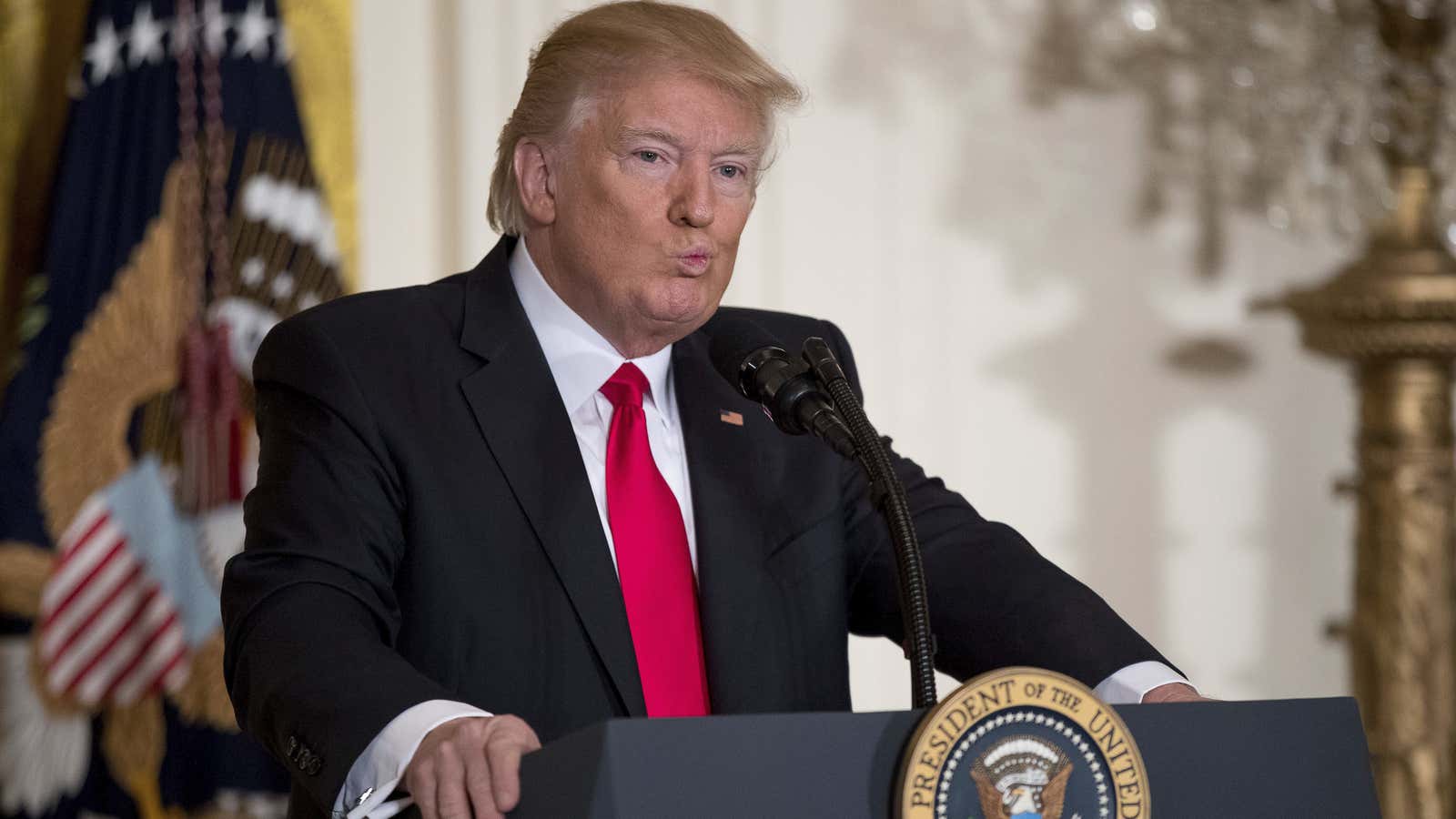After a few months of attempts at warmth, the US-Russia Cold War is back.
For the entire 2016 campaign and until very recently, US president Donald Trump promised a new relationship of cooperation with Russia. After years of tension between Vladimir Putin and Barack Obama, Trump argued that it would be better for the two countries to get along and take on common enemies such as ISIL. Last week, when Fox News firebrand Bill O’Reilly called Putin “a killer,” Trump scoffed: ”You think our country is so innocent?”
But that has become a burgeoning scandal as, among other things, leaks have revealed contact between Trump advisers and suspected Russian spies. In their first foreign trips of the new administration this week, US defense secretary James Mattis and secretary of state Rex Tillerson suggested that there will be no US-Russia detente until Moscow honors the international peace deal in Ukraine, and returns control of Crimea to Kiev.
And in a strange news conference on Thursday, Trump lamented that the deck appears to be stacked in favor of chilly relations between the countries, despite his and Putin’s own wish for closer ties:
If we could get along with Russia, that’s a positive thing. We have a very talented man, Rex Tillerson, who’s going to be meeting with them shortly and I told him. I said, “I know politically it’s probably not good for me.” The greatest thing I could do is shoot that ship that’s 30 miles off shore right out of the water.
Everyone in this country’s going to say, “oh, it’s so great.” That’s not great. That’s not great. I would love to be able to get along with Russia.
Trump was referring to the presence of a Russian naval vessel 30 miles off the US east coast, the buzzing of a US ship by a Russian warplane in the Black Sea, and the Russian deployment of a cruise missile that may violate a 1987 treaty have also raised tensions.
When Tillerson met Thursday with his Russian counterpart, Sergei Lavrov, at a G20 meeting in Bonn, it didn’t go very smoothly. Reporters were hastily ushered out of the room just after Lavrov answered a question about the resignation of Trump advisor Michael Flynn, saying: “You should know we do not interfere in the domestic matters of other countries.”
“Why did you shush them out?” Lavrov complained.
Amid all the drama, general Joseph Dunford, chairman of the US Joint Chiefs of Staff, met with his Russian counterpart, general Valeriy Gerasimov, in the Azerbaijan capital of Baku.
The meeting was notable because the Russian general is the originator of the “Gerasimov Doctrine,” which lays out a playbook for the “hybrid warfare” that Moscow has been carrying out across Europe and in the US. Hybrid war employs information warfare (more recently labeled “fake news”), cyberattacks, and other forms deception in order to conquer an enemy without firing a shot.
Underscoring the chasm between the two countries, Gerasimov has claimed that hybrid war is purely defensive, and that it is the US that invented such methods in the first place.
